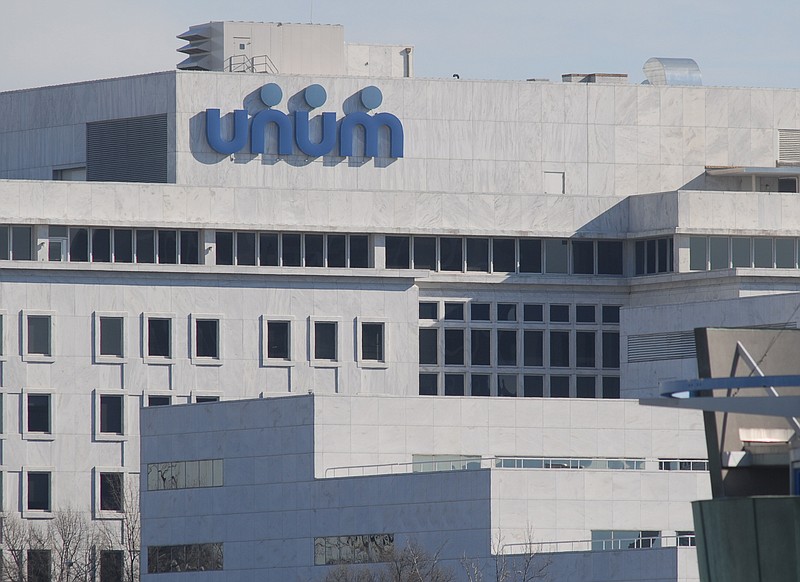Shares of Unum Group rose more than 1 percent Tuesday to their highest level in nearly three months after the Chattanooga-based insurance giant reported a nearly 24 percent gain in second quarter earnings and projected its profits for all of 2018 should grow up to 23 percent.
But investors remained concerned about a book of business Unum closed out nearly a decade ago and may require the company to set aside additional reserves to cover this fall. Unum, which has reported higher-than-expected negative claims experience in its long-term care book of business in each of the past two quarters, said it has accelerated a review of its long-term care business and could be required to add up to $750 million in reserves.
"The results of the long-term care business line continue to be challenged as the interest adjusted benefit ratio increased to 96.9 percent in the second quarter this year, compared to the year-ago second quarter of 89.4 percent and 96.6 percent in the first quarter 2018," Unum Chief Financial Officer Jack McGarry told investment analysts Tuesday. "Benefits experienced this quarter was again driven by new claim incidence that ran higher than expected Our long-term care results continue to be adversely impacted by the timing of rate increase approvals and the effect that has on premium income for this line."
Unum plans to complete a reserve analysis in the third quarter of 2018 to give wary shareholders more certainty about the costs and earnings impact from the long-term care line of business.
"We are still assessing our assumptions, but our current expectation is that any increase of our long-term care reserves will likely be predominantly a GAAP event and will likely not exceed $750 million after tax," McGarry said.
That didn't prevent Unum from raising its dividend by 13 percent in May and won't affect Unum's $100 million-per-quarter stock repurchase plan, which is likely to resume in the fourth quarter, McGarry said.
Rick McKenney, CEO of Unum, said the results in the first half of 2018 don't necessarily indicate a rising pattern of higher adverse claims experience in the long-term care operations.
"In terms of looking at claims incidence, two quarters does not trend make in long-term care," McKenney said. "We've actually seen periods where there've been four and six quarters of either very low incidence or very elevated incidence that is turned around in other periods."
Unum share plunged by more than 17 percent in May when the insurer first announced the higher-than-expected claims experience in its long-term care line. Such claims average about $100,000 each and have exceeded what the company initially projected. In an environment of relatively low interest yields of reserves investments, long-term care has hurt Unum and most other long-term care providers.
Catherine Seifert, Wall Street analyst at CFRA, cut the 12-month target price for Unum Tuesday from $52 to $45, or 8.7 times what Seifert projects Unum will earn in the next year.
"Several issues temper our view," she said while recommending a "Hold" on the Unum stock.
Contact Dave Flessner at dflessner@timesfreepress.com or at 757-6340
